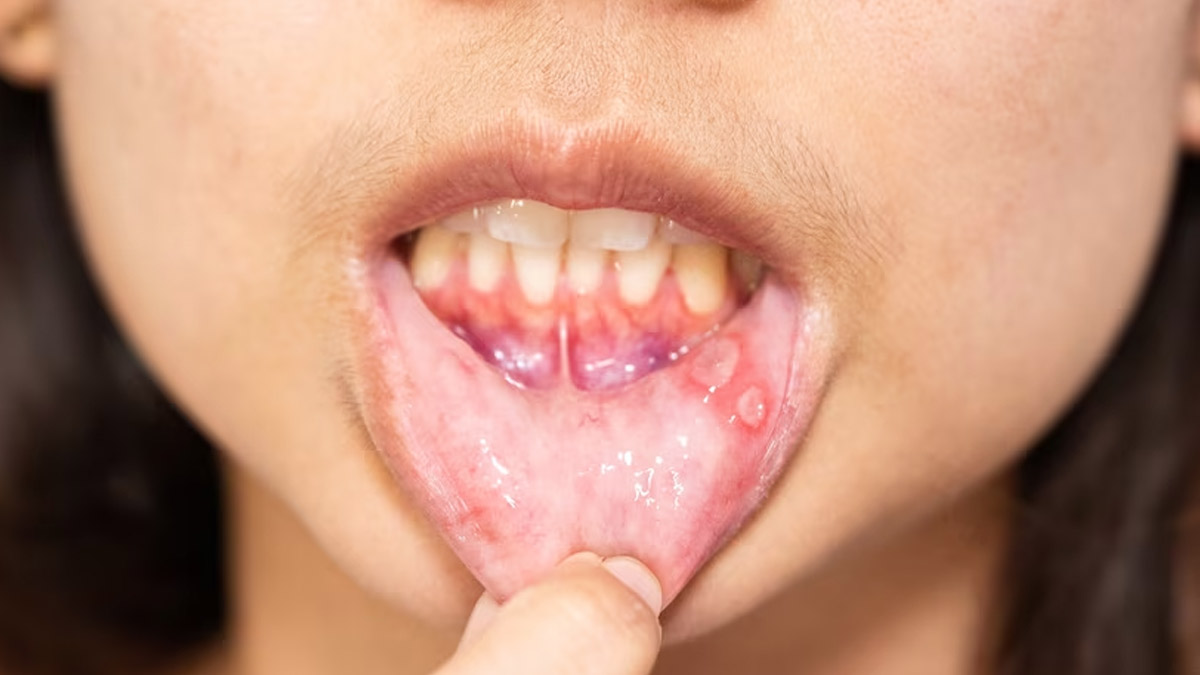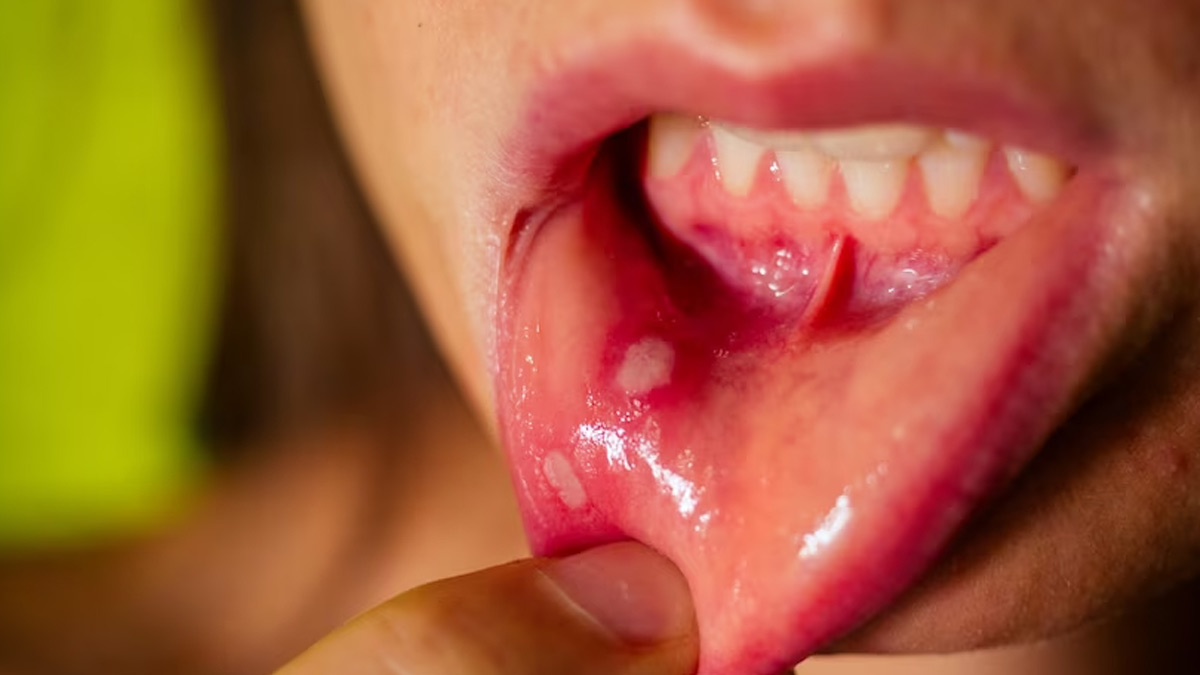
Mouth ulcers, also known as canker sores, are a common oral health issue that affects many people. These small, painful sores can make speaking, eating, and even smiling a challenging experience. While most individuals may experience an occasional mouth ulcer, some individuals face the recurrent appearance of these painful sores. Understanding the reasons behind this recurring issue is crucial to finding effective remedies and preventive measures. To know about it, we spoke to Dr Nihal Yadav, BDS, Amayra Dental Clinic, Kaushik Enclave, Burari, Delhi and Former Resident, Deen Dayal Hospital, Hari Nagar, Delhi.
Table of Content:-
What are Mouth Ulcers?
Mouth ulcers are shallow, round or oval sores that can form on the inside of the lips, cheeks, tongue or the base of the gums. They are characterised by a white or yellowish centre, surrounded by a red border. These painful lesions can vary in size and often last for about one to two weeks before healing on their own.

According to the Nature Journal, “Oral ulceration is the most common ulcerative condition in humans, affecting up to 25% of young adults and a higher proportion of children.” Although mouth ulcers are not contagious, they can significantly impact an individual's quality of life, causing discomfort and irritation.
Also Read: How To Cure Mouth Ulcers Fast And Naturally
Causes of Frequent Mouth Ulcers
Genetic Predisposition
"Some individuals may have a genetic predisposition to develop mouth ulcers frequently. If someone in your immediate family experiences recurrent mouth ulcers, chances are you may also be prone to this condition," said Dr Yadav.
Nutritional Deficiencies

"A lack of essential nutrients in the diet can compromise the body's ability to heal and maintain healthy oral tissues. Deficiencies in vitamin B12, iron, folic acid, and zinc have been linked to an increased risk of developing mouth ulcers," said the doctor.
Stress and Anxiety
"High levels of stress and anxiety can weaken the immune system, making the body more susceptible to infections and inflammatory conditions. Stress can trigger recurrent mouth ulcers in susceptible individuals," he added.
Hormonal Changes
Hormonal fluctuations during menstruation, pregnancy, or menopause may lead to the development of mouth ulcers in some people. "The exact mechanisms behind this association are not fully understood, but hormonal imbalances could play a role," stated Dr Yadav.
Also Read: Mouth Ulcers: 7 Home Remedies To Treat Painful Sores
Food Sensitivities

Dr Yadav said, "Certain foods or additives can irritate the delicate lining of the mouth, leading to the formation of ulcers. Spicy, acidic, or rough-textured foods may trigger recurrent mouth ulcers in susceptible individuals."
Autoimmune Disorders
"Individuals with certain autoimmune conditions, such as celiac disease, inflammatory bowel disease, or Behcet's disease, have a higher risk of developing frequent mouth ulcers due to the body's immune system attacking healthy cells," said Dr Yadav.
Way Forward
If you suffer from recurrent mouth ulcers, consider consulting with a dentist or healthcare professional to rule out any underlying medical conditions or nutritional deficiencies. Maintaining good oral hygiene, following a balanced diet, and managing stress levels can significantly reduce the frequency of mouth ulcers. Moreover, avoiding trigger foods and using gentle oral care products can also help prevent irritation and reduce the likelihood of ulcers forming.
[Disclaimer: This article is for informational purposes only. Consult your healthcare provider to get a thorough diagnosis and treatment as per your health needs.]
Image Credits: freepik
Also watch this video
How we keep this article up to date:
We work with experts and keep a close eye on the latest in health and wellness. Whenever there is a new research or helpful information, we update our articles with accurate and useful advice.
Current Version